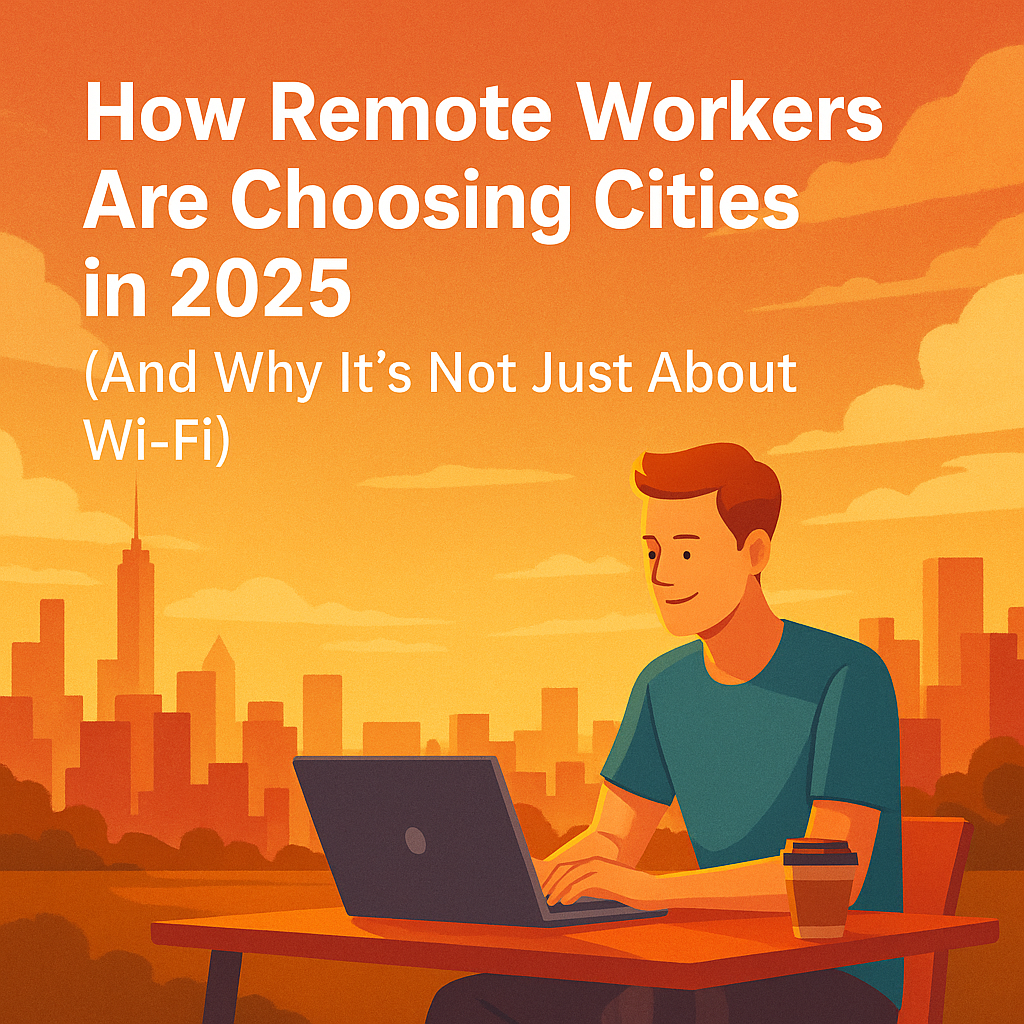How Remote Workers Are Choosing Cities in 2025 (And Why It’s Not Just About Wi‑Fi)
In 2025, remote work isn’t just a trend—it’s a global lifestyle. But as more people untether from offices, how they choose where to live is shifting, too.
It’s no longer just about internet speed and cheap rent. Remote workers now prioritize community, long-term viability, and lifestyle infrastructure when picking a home base.
Here’s what’s changed—and the cities rising because of it.
1. Visa Access Is a Dealbreaker
In 2025, cities without friendly visa policies are losing out.
Remote workers are choosing countries that offer:
- Long-stay digital nomad visas
- Visa-free or low-barrier entry
- Clear residency or PR pathways
- Tax clarity (territorial or low personal income tax)
Rising stars:
- Portugal (Digital Nomad Visa)
- Georgia (365-day visa-free)
- Indonesia (5-year Bali remote visa)
- Spain (Startup Act visa)
2. Community & Culture Matter More Than Price
A $400/month apartment isn’t appealing if you feel isolated or unsafe.
Remote professionals are prioritizing:
- English-speaking or international hubs
- Local creative/tech scenes
- Access to events, coworking, and social life
- Safety and public infrastructure
Trending hubs with strong communities:
- Lisbon
- Medellín
- Mexico City
- Chiang Mai
- Tallinn
3. Stability Is the New Gold
Post-pandemic, post-boom cycles have taught remote workers to seek:
- Currency stability
- Healthcare access
- Political safety
- Legal clarity (esp. for business or freelance work)
Cities gaining popularity for balance + predictability:
- Kuala Lumpur
- Valencia
- Prague
- Cape Town
4. Climate, Outdoors & Walkability Are Core Factors
After years of laptop + couch life, physical wellbeing has become a priority.
Remote workers are searching for:
- Temperate climates or beach access
- Walkable urban centers
- Parks, nature, surf, or trails nearby
Lifestyle-first picks:
- Canggu
- Split (Croatia)
- Wellington
- Porto
5. Time Zones Still Rule for Full-Time Roles
As async work grows, many freelancers can roam—but full-time remote workers still consider time zones carefully.
Key zones with overlap to US/EU jobs:
- Bogotá
- Cape Town
- Tbilisi
- Belgrade
- Istanbul
What’s Out in 2025
- Cities with high pay but poor infrastructure
- Countries with unclear digital work laws
- Places with hard caps on visa renewals
- Overcrowded nomad hubs with rising costs (e.g., central Bangkok, central Bali)
Smart Search: Use the Tool to Filter
Use our comparison tool to sort cities by:
- Internet + coworking availability
- Visa length + renewal ease
- Rent-to-salary ratio
- Digital nomad community index
- Safety, healthcare, air quality
Final Insight
The new remote worker isn’t just looking for cheap and fast Wi-Fi—they’re building a lifestyle.
In 2025, the best cities offer:
✅ Stability
✅ Legal clarity
✅ Real community
✅ Lifestyle options
✅ A future, not just a temporary base
Explore your top-fit cities now with our remote living filter.
